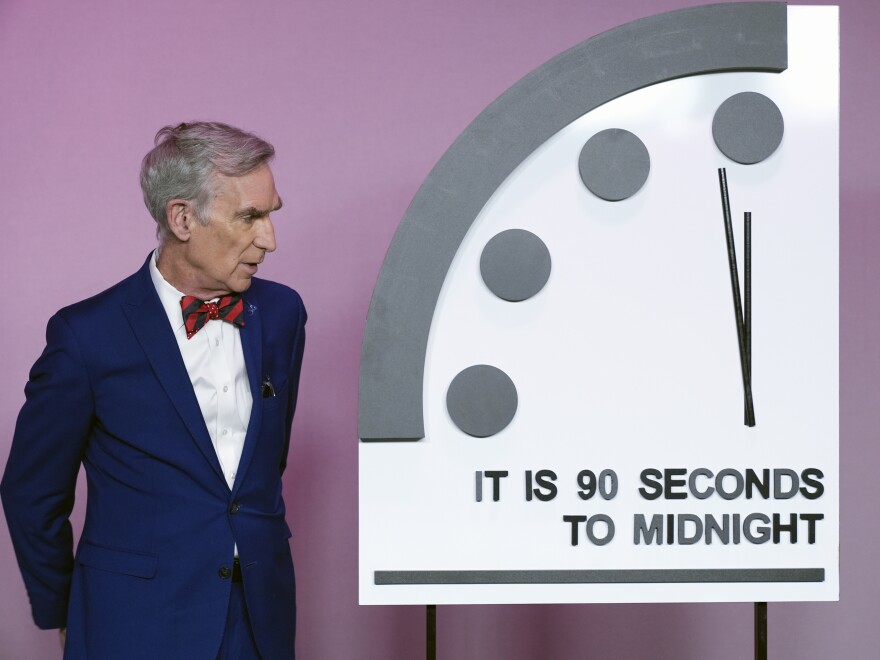WASHINGTON — Earth, for the second year running, is nearing apocalypse, a science-oriented advocacy group said, pointing to its famous "Doomsday Clock" that shows 90 seconds till midnight.
The Bulletin of Atomic Scientists made the annual announcement Tuesday rating how close humanity is from ending. It cited nuclear threat in Russia's war on Ukraine as well as the Oct. 7 attack in Israel and war in Gaza, worsening climate-related disasters and the danger of generative artificial intelligence.
"Last year, we expressed amplified concern by moving the clock to 90 seconds to midnight, the closest to global catastrophe it has ever been," said Rachel Bronson, CEO of the Bulletin group. "The risks from last year continue with unabated veracity and continue to shape this year."
Starting in 1947, the advocacy group used a clock to symbolize the potential and even likelihood of people doing something to end humanity. After the end of the Cold War, it was as close as 17 minutes to midnight. In the past few years, to address rapid global changes, the group has changed from counting down the minutes until midnight to counting down the seconds.
The group said the clock could be turned back if leaders and nations worked together, and specifically noted powerful countries that have the capacity to do so, including the United States, China and Russia.
Copyright 2024 NPR. To see more, visit https://www.npr.org.

